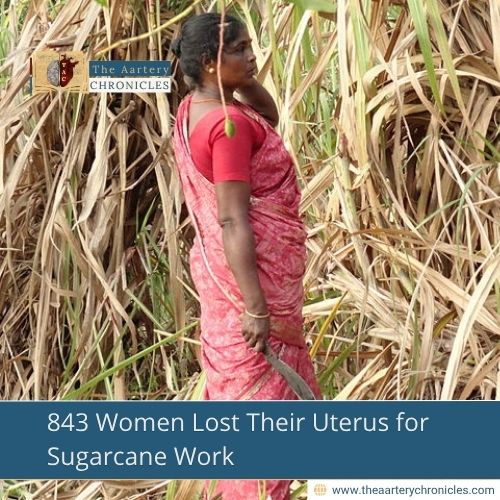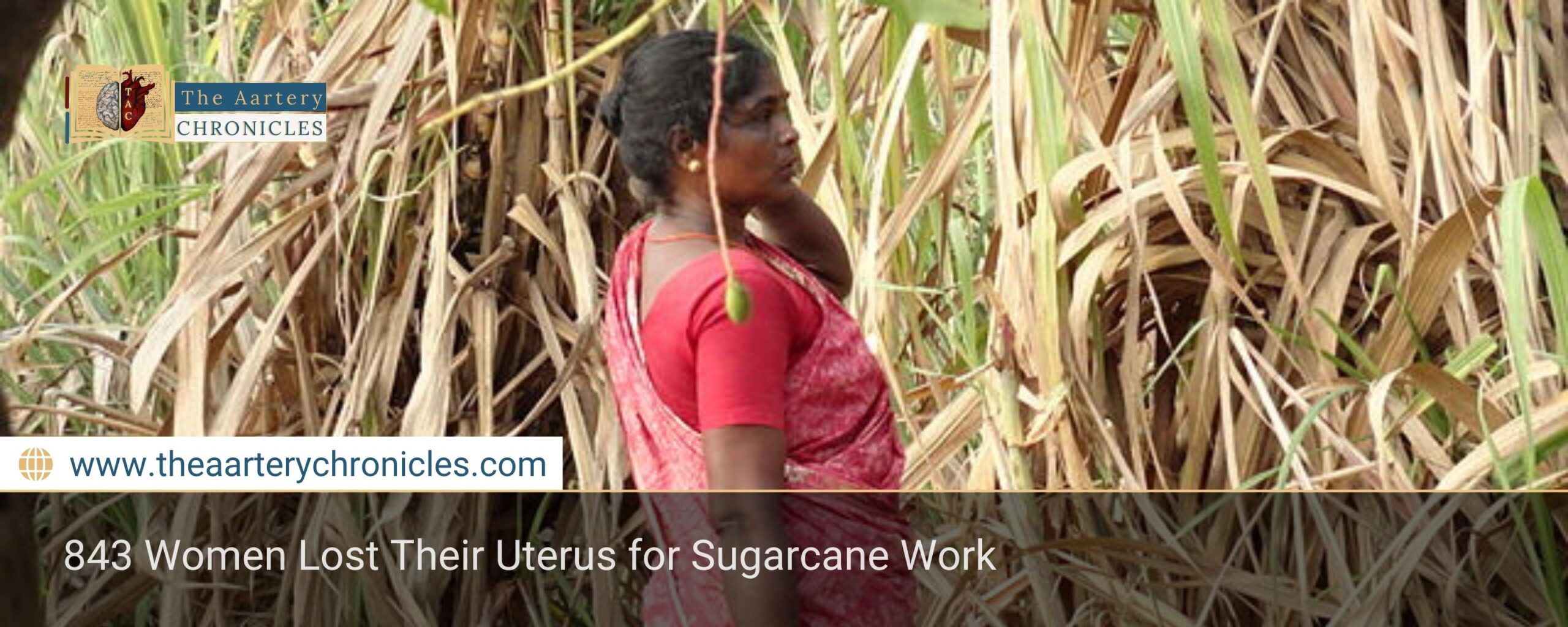

843 Women Lost Their Uterus for Sugarcane Work
A recent health survey in Beed district, Maharashtra, has revealed deeply troubling findings about the health and working conditions of women involved in sugarcane harvesting. Beed, a region known for sending thousands of seasonal workers to sugarcane fields across Maharashtra, Gujarat, and Karnataka, has highlighted a silent crisis involving forced surgeries, unsafe pregnancies, and widespread anaemia.
Hundreds of Women Undergo Uterus Removal
The report found that 843 women sugarcane workers had undergone hysterectomies (surgical removal of the uterus), with the majority aged between 30 and 35 years. Many of these women reported symptoms like heavy menstrual bleeding, abdominal pain, and infections.
What’s alarming is that 279 of these surgeries were done in private hospitals but were reportedly approved by government doctors. Activists and health professionals fear that these procedures may be driven by the pressure to stay employed, as menstruation and reproductive health issues are seen as obstacles to work during the months-long sugarcane cutting season.
Pregnancy Doesn’t Stop Work
The same report recorded 1,523 women working in sugarcane fields while pregnant. Despite being registered on the government’s Maternal and Child Welfare portal, these women were forced to continue heavy physical labour while carrying out their pregnancies.
This situation speaks volumes about the economic desperation of these families. Women often work in harsh, unsanitary conditions without access to proper maternal care, risking both their health and that of their unborn children.
Anaemia at Alarming Levels
Health screenings showed that 3,415 women suffered from anaemia—a condition caused by low levels of iron, vitamin B12, and folic acid. The causes include:
- Nutritional deficiencies due to poverty and lack of awareness
- Blood loss from menstrual issues or surgery
- Inherited conditions like thalassemia
Left untreated, anaemia can lead to extreme fatigue, complications during pregnancy, and a higher risk of infection.
What the Government Is Doing
In response to the health crisis, the district health department has taken a few steps:
- 46,231 women were screened for health issues before migration
- Health cards were issued to track and support women workers
- Women’s Health Action Groups have been set up in 1,132 villages to offer guidance, support, and health monitoring
Dr. Sachin Shekde, Beed’s Maternal and Child Welfare Officer, confirmed the hysterectomy and pregnancy statistics, stating they were recorded during routine health assessments before and after the sugarcane season.
Conclusion
These findings bring urgent attention to the health exploitation of rural women in India’s informal workforce. Many women are forced to compromise their reproductive health and continue working in dangerous conditions to survive. There is a pressing need for better healthcare access, stronger labour protections, and community awareness to prevent such practices from continuing.
Source: Inputs from various media Sources

Priya Bairagi
Reviewed by Dr Aarti Nehra (MBBS, MMST)
I’m a pharmacist with a strong background in health sciences. I hold a BSc from Delhi University and a pharmacy degree from PDM University. I write articles and daily health news while interviewing doctors to bring you the latest insights. In my free time, you’ll find me at the gym or lost in a sci-fi novel.








